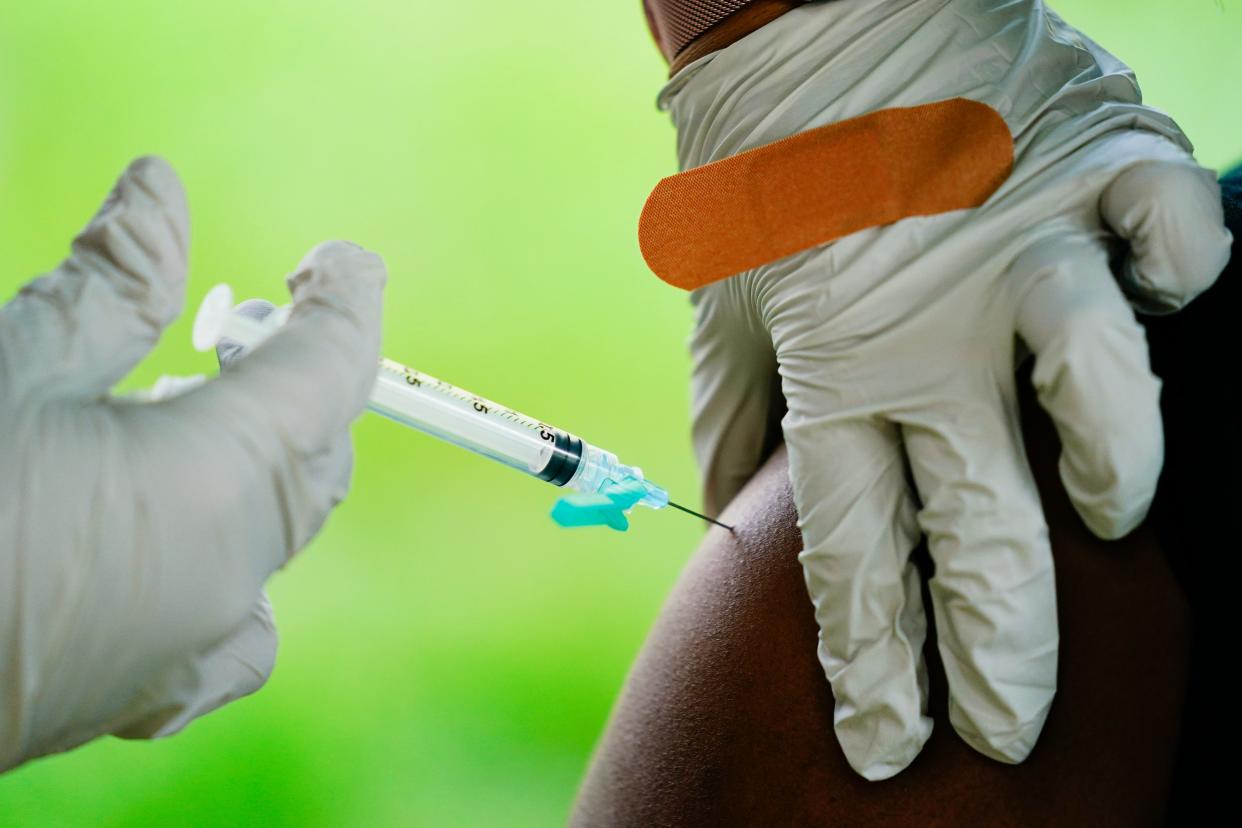Fact check: New COVID-19 variants continue to be discovered

The claim: COVID-19 variants are no longer being found
An April 7 Instagram post (direct link, archive link) poses a question about the virus that causes COVID-19.
“Anyone else find it odd that we stopped having new variants all of a sudden?” reads the post.
The post was liked more than 10,000 times in less than a week. A similar claim was shared on Twitter.
Follow us on Facebook! Like our page to get updates throughout the day on our latest debunks
Our rating: False
New variants of the virus that causes COVID-19 continue to be reported by health officials around the globe, according to public trackers.
Virus causing COVID-19 continues to mutate
Multiple sources show that new variants of the virus that causes COVID-19 have been found in recent months. The Centers for Disease Control and Prevention defines a new variant as a viral genome with at least one mutation from a previous version.
A database maintained by the Global Initiative on Sharing All Influenza Data, an international effort to make virus data quickly accessible, listed new variants in more than 80 countries since the start of April.
The World Health Organization, which also tracks variants, added XBB.1.16 to its list of variants under monitoring in March. It was discovered in January and is responsible for a growing number of cases in India.
The CDC offers its own tracker. XBB.1.5, a subvariant of the omicron strain, is the most common variant in the U.S. and represents nearly 88% of cases at the start of April, according to the University of Nebraska Medical Center.
The WHO groups certain variants into categories based on the level of concern and risk they pose to public health. A variant that has genetic mutations that could “affect virus characteristics” and early signs of “growth advantage relative to other circulating variants” is considered a variant under monitoring by the WHO. It isn’t clear how variants in this category would affect a person’s health, and they can move to other categories that signify greater or imminent risk as they are better understood.
Fact check: COVID-19 vaccines are safe during pregnancy, contrary to viral claim
The WHO and the SARS-CoV-2 Interagency Group, a group within the Department of Health and Human Services, are responsible for assigning a Greek letter to variants that are significantly different from earlier variants, said Lisa George, a spokesperson for the CDC. That last happened when the omicron variant was named in November 2021. Most variants circulating now are subvariants of omicron.
The risk posed by future variants is significant enough that the White House on April 10 announced a $5 billion effort to develop vaccines and therapeutics that can have broader efficacy against them.
“We need vaccines that are more durable," Ashish Jha, the White House coronavirus coordinator, said at a July 2022 White House coronavirus vaccine summit. "Vaccines that offer broader and longer-lasting protection. Vaccines that can stand up to multiple variants. Vaccines that can handle whatever Mother Nature throws at us."
USA TODAY reached out to the social media users who shared the claim for comment.
The Associated Press, PolitiFact and Lead Stories also debunked versions of the claim.
Our fact-check sources:
Lisa George, April 10, Email exchange with USA TODAY
GISAID, accessed April 13, Tracking of hCoV-19 Variants
CDC, updated April 7, Variant Proportions
CDC updated March 20, SARS-CoV-2 Variant Classifications and Definitions
CDC, updated Feb. 6, Variants of the Virus
WHO, updated March 30, Tracking SARS-CoV-2 variants
WHO, March 30, Weekly epidemiological update on COVID-19 - 30 March
University of Nebraska Medical Center, April 1, What COVID-19 variants are going around in April 2023?
Washington Post, April 10, White House launching $5 billion program to speed coronavirus vaccines
ABC News, April 6, What to know about the XBB.1.16 COVID variant causing concern in India
Thank you for supporting our journalism. You can subscr ibe to our print edition, ad-free app or electronic newspaper replica here.
Our fact-check work is supported in part by a grant from Facebook.
This article originally appeared on USA TODAY: Fact check: New COVID-19 variants still found frequently

